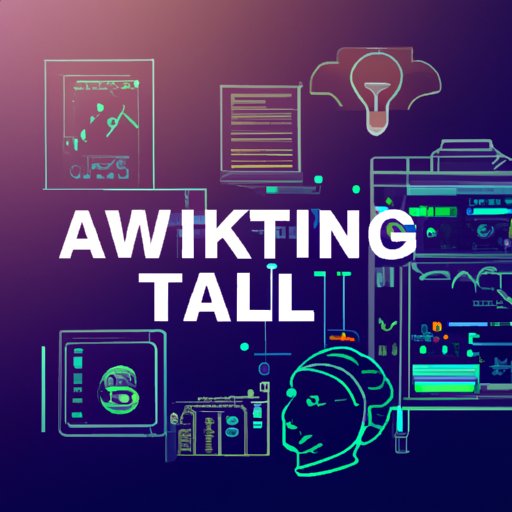Introduction
Artificial intelligence (AI) has been a hot topic in recent years, with businesses, governments, and individuals all exploring how it can be used to improve their operations. In the world of finance, AI has become an increasingly important tool for traders, as they look to capitalize on the potential of this technology to identify profitable opportunities in the market. But does AI trading actually work? To answer this question, it’s important to consider the pros and cons of AI trading and understand the impact that it has had on the financial markets.
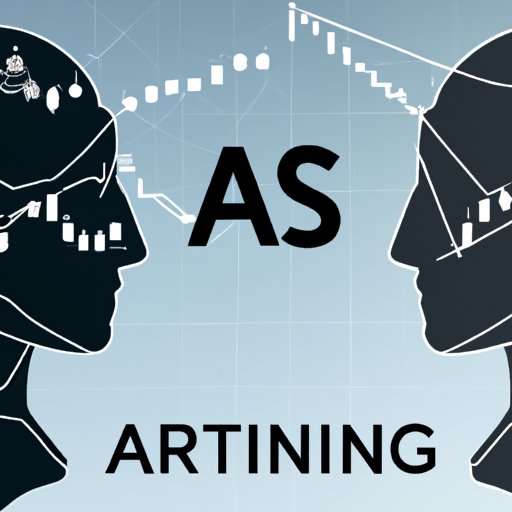
Examining the Pros and Cons of AI Trading
Before exploring the potential benefits of AI trading, it’s important to understand some of the potential drawbacks. AI trading requires significant capital investment, as well as sophisticated algorithms and software systems that must be maintained and updated regularly. This means that there are high costs associated with using AI trading, which can be prohibitive for some traders. Additionally, AI trading is subject to the same risks as any other form of trading, such as market volatility and changes in regulations.
On the other hand, there are numerous advantages associated with AI trading. For one, AI trading is more efficient than manual trading, as it can analyze large amounts of data quickly and accurately. This can help traders identify profitable opportunities in the market and make better informed decisions. Additionally, AI trading is less prone to human error, as the algorithms are designed to follow predetermined rules, which can help reduce losses due to mistakes. Finally, AI trading can also help traders to diversify their portfolios, as the algorithms can identify opportunities in different asset classes that may have been overlooked by humans.
Exploring the Impact of AI on Financial Markets
The impact of AI on financial markets has been significant. On the short-term, AI trading has increased liquidity in the markets, as high-frequency trading algorithms can rapidly buy and sell assets. This increased liquidity can lead to lower transaction costs and improved price discovery. On the long-term, AI trading has led to improved efficiency in the markets, as the algorithms are able to identify profitable opportunities more quickly and accurately than humans.
AI trading has also changed the way that investors approach the markets, as many now rely heavily on data-driven models to identify profitable trades. This has led to an increased focus on quantitative analysis, as investors attempt to gain an edge over their competitors. Additionally, AI trading has made it easier for traders to access global markets, as the algorithms can rapidly identify and capitalize on opportunities in different asset classes.
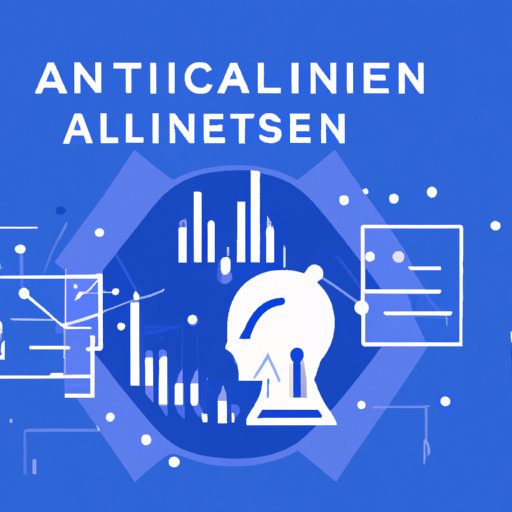
Analyzing the Effectiveness of AI Trading Strategies
In order to assess the effectiveness of AI trading strategies, it’s important to consider two key factors: risk management and returns. With regards to risk management, AI trading algorithms can help traders to identify and manage risk more efficiently, as they are able to analyze large amounts of data quickly and accurately. This can help traders to identify potential risks before they occur and take steps to minimize their exposure. However, it’s important to note that even the most sophisticated algorithms are not infallible and can still make mistakes.
When it comes to returns, AI trading strategies can be highly effective. By leveraging machine learning algorithms, traders can identify profitable patterns in the market and capitalize on them quickly. Additionally, AI trading can help traders to diversify their portfolios, as the algorithms can identify opportunities in different asset classes that may have been overlooked by humans. However, it’s important to note that AI trading is subject to the same risks as any other form of trading, so it’s important to ensure that the algorithms used are properly calibrated to mitigate these risks.
Investigating How AI is Transforming Investment Decisions
AI is transforming the way that investors approach the markets, as many now rely heavily on data-driven models to identify profitable trades. AI algorithms can analyze large amounts of data quickly and accurately, allowing traders to identify patterns in the markets that would otherwise be too complex for humans to detect. Additionally, AI algorithms can help traders to diversify their portfolios, as the algorithms can identify opportunities in different asset classes that may have been overlooked by humans.
Furthermore, AI algorithms can help investors to make more informed decisions by analyzing historical data and predicting future outcomes. This can help investors to make more accurate predictions about the direction of the markets and to identify potential profit opportunities. Finally, AI algorithms can also be used to automate certain aspects of trading, such as placing orders and executing trades, which can help traders to save time and reduce costs.
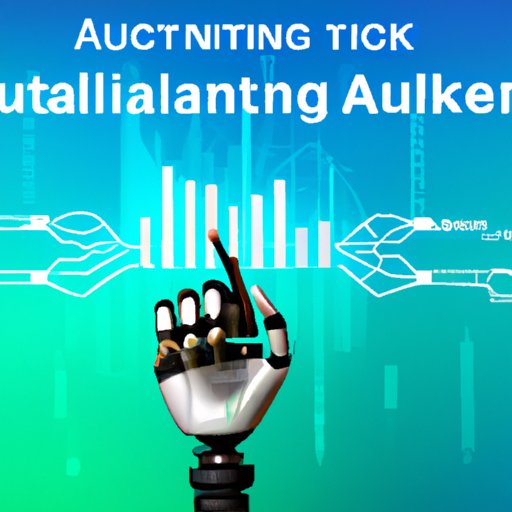
Evaluating the Role of AI in Automated Trading Systems
Automated trading systems are becoming increasingly popular, as they allow traders to execute trades quickly and efficiently. AI algorithms can be used to automate certain aspects of trading, such as placing orders and executing trades. This can help traders to save time and reduce costs, as the algorithms can identify and capitalize on opportunities in the markets more quickly than humans. Additionally, automated trading systems can also help to reduce the risk of human error, as the algorithms are designed to follow predetermined rules.
However, there are also some potential drawbacks associated with automated trading systems. For one, automated trading systems can be expensive to set up and maintain, as they require sophisticated algorithms and software systems. Additionally, automated trading systems can be vulnerable to hacking and other malicious activities, so it’s important to ensure that they are properly secured. Finally, automated trading systems can also be limited in their ability to adapt to changing market conditions, as the algorithms are designed to follow predetermined rules.
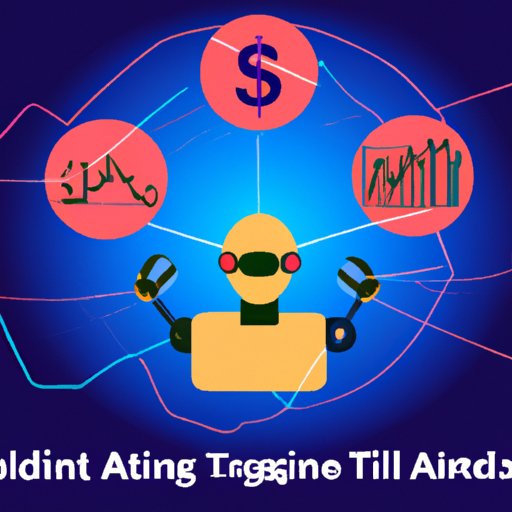
Understanding the Benefits and Risks of AI Trading
Before investing in AI trading, it’s important to understand the potential benefits and risks. On the one hand, AI trading can help traders to identify profitable opportunities in the market more quickly and accurately than humans. Additionally, AI trading can also help traders to diversify their portfolios, as the algorithms can identify opportunities in different asset classes that may have been overlooked by humans. However, it’s important to note that AI trading is subject to the same risks as any other form of trading, so it’s important to ensure that the algorithms used are properly calibrated to mitigate these risks.
Comparing Human and AI Trading Performance
It’s also important to consider the differences between human and AI trading performance. While AI algorithms can analyze large amounts of data quickly and accurately, they are still limited by their programming and cannot respond to unexpected events or account for psychological factors that may influence market movements. Additionally, AI algorithms may struggle to detect subtle patterns in the markets that could be identified by experienced traders.
On the other hand, humans are able to use their intuition and experience to identify potential opportunities in the markets. Additionally, humans are more adept at responding to unexpected events and are better able to account for psychological factors that may influence market movements. Ultimately, both human and AI trading have their advantages and disadvantages, so it’s important to consider both when making investment decisions.
Conclusion
AI trading can provide numerous advantages, including greater efficiency, reduced risk of human error, and improved price discovery. However, it’s important to understand the potential risks associated with AI trading, such as the cost of setting up and maintaining the algorithms and software systems, as well as the potential for hacking and other malicious activities. Ultimately, AI trading can be a powerful tool for traders, but it’s important to understand the potential benefits and risks before investing.
(Note: Is this article not meeting your expectations? Do you have knowledge or insights to share? Unlock new opportunities and expand your reach by joining our authors team. Click Registration to join us and share your expertise with our readers.)
